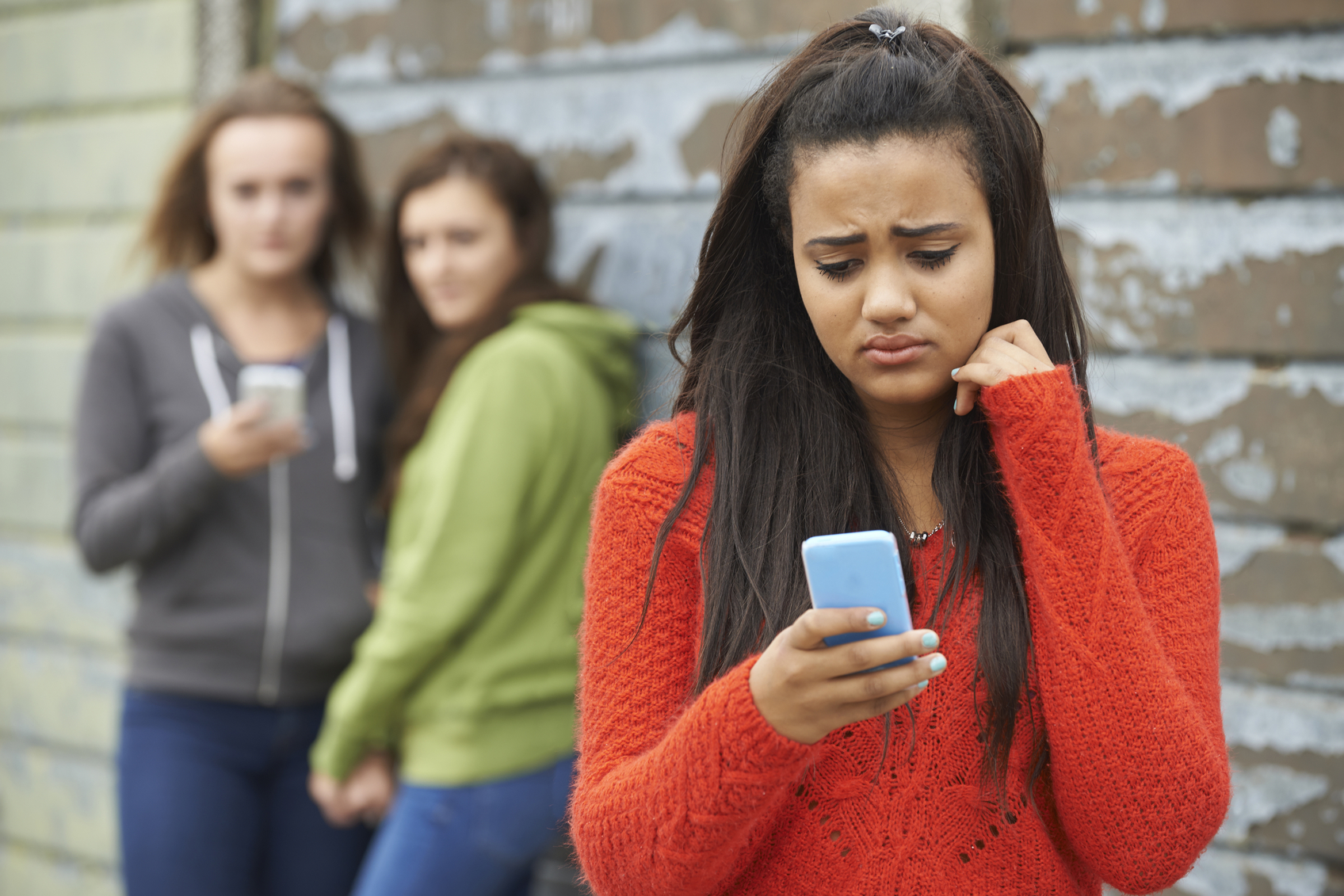
Key facts
- Bullying is behaviour that is repeated and intended to cause psychological, social or physical harm.
- Bullying can be harmful to your mental health, your self-esteem and your social relationships.
- People who bully often have low self-esteem.
- If you are being bullied or you know of someone who is being bullied, there are ways to stop it and places to go for advice and support.
What is bullying?
Bullying is when people deliberately use words or actions repeatedly against an individual or a group to cause physical, social and/or psychological harm. They usually want to make the person feel less powerful or helpless.
Bullying can happen anywhere — at school, at work, at home, online, or by text messaging or email. Bullying can come in different forms, all of which cause distress and pain for the person who is being bullied.
Different types of bullying
There are many different types of bullying:
Verbal bullying | Name calling, teasing, putting someone down, threatening to cause someone harm. |
Physical bullying | Poking, hitting, punching, kicking, spitting, tripping or pushing someone, breaking someone’s things, pulling faces or making rude hand signals. |
Social bullying | Lying, spreading rumours, playing horrible jokes, leaving someone out on purpose, embarrassing someone in public. |
Cyberbullying | Cyberbullying is using technology like email, mobile phones, chat rooms or networking sites to hurt someone by sending hurtful messages, pictures or comments. |
Bullying behaviour at work that is physically, mentally or socially threatening can include intimidation, threats, exclusion, verbal or physical abuse. For more information or if you are being bullied at work, check the Fair Work Ombudsman’s Bullying in the workplace website.
Bullying is not the same as harassment. Harassment includes any unwelcome behaviour that offends, humiliates or intimidates a person. While harassment can be an element of bullying, harassment can be a one-off conflict or can happen between strangers. If these behaviours happen only once it is not bullying. Behaviour that involves conflict between equals, no matter how inappropriate, is also not considered bullying. The behaviours alone don’t define bullying.
Why do people bully?
There are different reasons why people bully, including:
- wanting to dominate others and improve their social status
- having low self-esteem and wanting to feel better about themselves
- having a lack of remorse or failing to recognise their behaviour as a problem
- feeling angry, frustrated or jealous
- struggling socially
- being the victim of bullying themselves
Some children who bully may enjoy getting their own way. Others may like conflict and aggression. Some may be thoughtless, rather than deliberately hurtful. Some may have difficulties with health, schoolwork and self-esteem. Some may be emotionally neglected, bullied, abused or be experiencing violence themselves.
Bullies are more likely to have lifelong issues such as depression or problems with aggression.
Children can take on different roles in different circumstances. Those who are bullied in one situation may be the bully in another.
What are the signs of bullying?
Bullying affects people in different ways, but some common signs of bullying include:
- being unusually secretive and quiet
- appearing oversensitive or weepy, or having angry outbursts
- not sleeping properly
- having physical injuries like bruises, cuts or scratches
- becoming isolated, withdrawn, or losing interest in normal activities
- having physical aches and pains like headaches or stomach aches
- receiving more messages than usual via social media
What are the signs my child is being bullied?
Signs your child is possibly being bullied include any of the above, as well as:
- not wanting to go to school or having no friends
- having damaged or missing belongings
- a child who has been toilet trained starts to wet their bed again
- having physical aches and pains like headaches or stomach aches
- receiving more messages than usual via social media
Bullying can happen to anyone at any age. Very few children tell anyone that they’re being bullied. They may feel weak, ashamed or frightened it will make the situation worse.
How might bullying affect me or my child?
Bullying affects everyone differently, but if you’re being bullied you may feel:
- guilty because you think it’s your fault
- hopeless because you don’t know how to get out of the situation
- alone, with no one to help you
- depressed and rejected by others
- unsafe and afraid
- confused and stressed
- ashamed that it’s happening to you
Bullying can affect your mental health whatever your age. It can lead to loneliness, anxiety and depression in children. People who are bullied in the workplace have a higher risk of experiencing depression and having suicidal thoughts.
How can bullying be stopped?
If bullying is not challenged and stopped, it can contribute to a culture where bullying is tolerated. If this occurs, everyone feels powerless to stop it.
If you are the person being bullied, you may need to use a few different strategies, such as:
- talking to a person you trust
- taking to someone you trust with you when you seek help or talk to the bully
- seeking help from an agency or support service, such as those listed below
If you feel safe and confident, you can approach the bully about why their behaviour is not OK.
We have a responsibility to respect and protect the rights of others. A bystander is someone who sees or knows about bullying that is happening to someone else. Find out more about your rights as a bystander
If your child is being bullied:
- help your child stay focused on finding a solution
- assure your child it’s not their fault
- talk to your child about different ways to relate to the bully and practise with them through role play
- let your child know you will contact their school
Your employer has a legal responsibility to provide a safe workplace, and a duty of care when it comes to your health and wellbeing at work.


